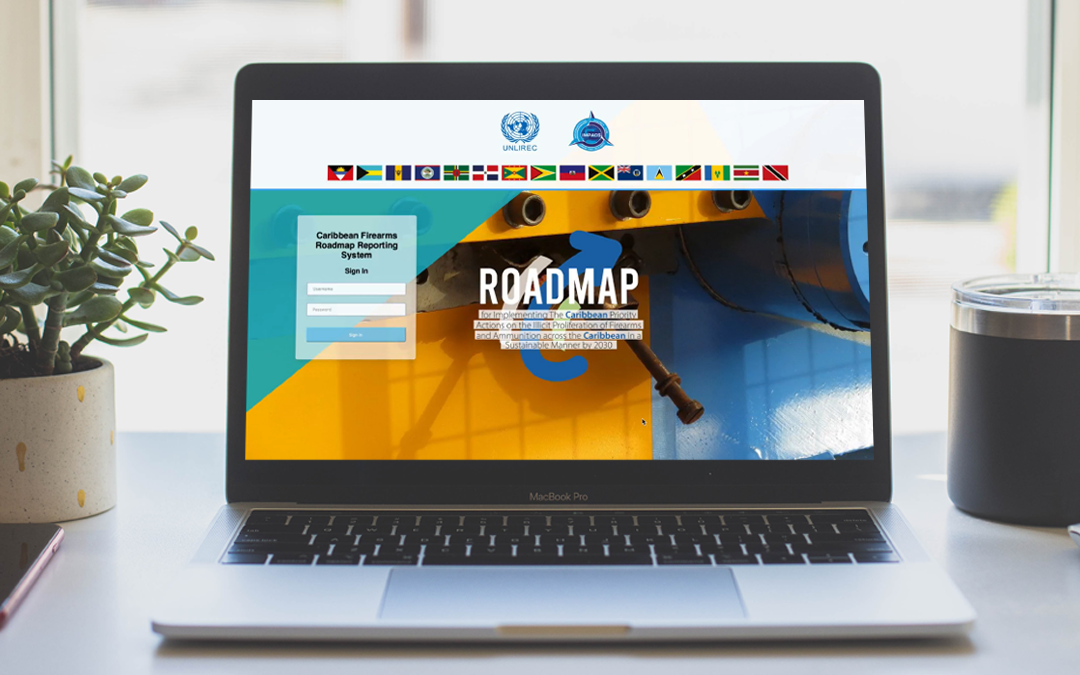On 27 March 2023 the United Nations Regional Centre for Peace, Disarmament and Development in Latin America and the Caribbean (UNLIREC) hosted the first regional Monitoring, Evaluation & Data Collection webinar. The aim of the webinar was to sensitize States on the Caribbean Firearms Roadmap Monitoring and Evaluation Framework, focusing on the practical steps States will need to take to collect and enter their annual reporting data in order to measure their progress in the implementation of the Roadmap.
Sixteen officials from Trinidad & Tobago, Guyana and St Kitts and Nevis participated, representing the Trinidad and Tobago Ministry of National Security, Trinidad and Tobago Ministry for Foreign and CARICOM Affairs, Trinidad and Tobago Police Force, Trinidad and Tobago Forensic Science Centre, Trinidad and Tobago Customs and Excise, Trinidad and Tobago Defence Force, Strategic Services Agency, Trinidad and Tobago Ministry of the Attorney General and Office of Legal Affairs, Judiciary of Trinidad and Tobago and Trinidad and Tobago Prison Service, Guyana Ministry of Home Affairs, and St Kitts and Nevis Forensic Laboratory.
The Monitoring and Evaluation Reporting Platform was presented, showcasing how States, through their Monitoring and Evaluation focal points, will be able to generate their State National Action Plans and report against their national Key Performance Indicators (KPIs) annually and with greater ease.
What is the Caribbean Firearms Roadmap?
The Caribbean Firearms Roadmap is a regional umbrella framework adopted by CARICOM States and the Dominican Republic in 2020, in which States commit themselves to implement actions against illicit firearms trafficking and make the Caribbean a safer region. To date, 16 countries in the region have formally adopted the Roadmap and begun the process of identifying their national priorities via a National Action Plan (NAP). There is commitment across the region to implement sustainable solutions to the prevention and combat of illicit proliferation of firearms and ammunition that are consistent with international norms and the Caribbean context.
This activity was made possible with funding from the Government of Canada and was carried out in line with the 2001 UN Programme of Action on Small Arms and with 2030 Agenda for Sustainable Development, in particular Goal 16 and target 16.4.


